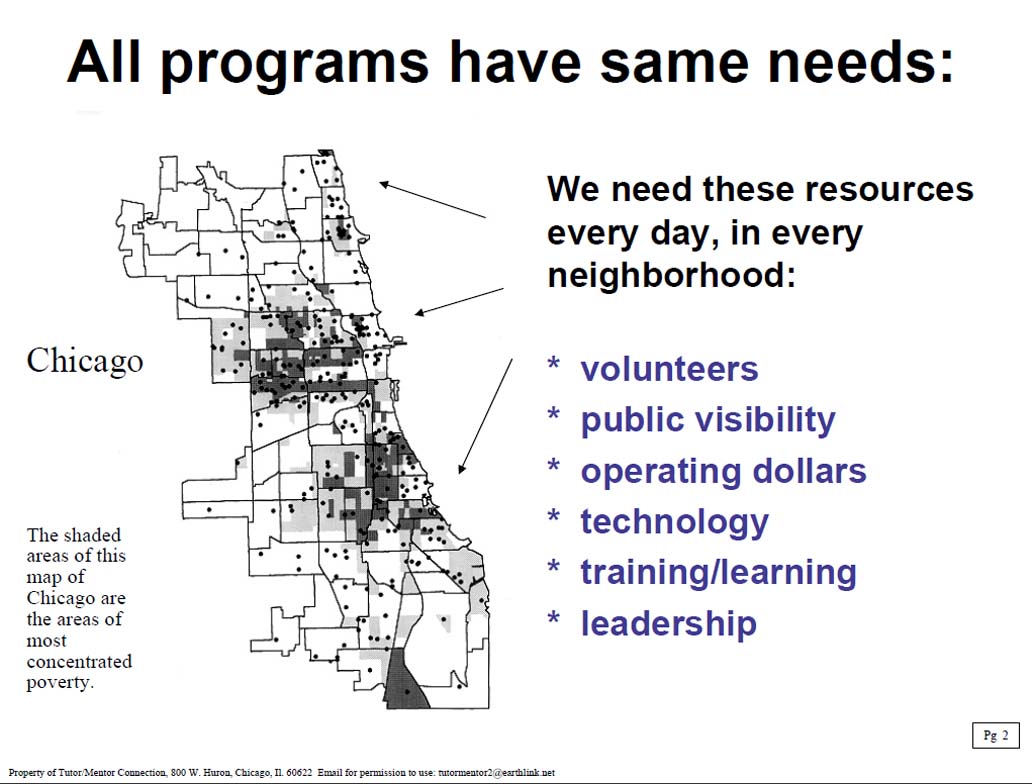LINKING IDEAS AND PEOPLE TO HELP CHICAGO'S KIDS: THIS IS A MARKETING PLAN THAT REQUIRES MANY LEADERS

"When nonprofit and community leaders share ideas, insights and information in ways that promote social impact...knowledge-sharing can improve organizational effectiveness. When we share what works and what doesn't... it results in accelerated learning, less reinventing the wheel, better service, and measurable results."
2003 quote by Mr. Tim Wilmot. Chief Knowledge and Evaluation Officer, Charles and Helen Schwab Foundation
The Tutor/Mentor Institute mission is accomplished through a four-part strategy. See PDF
Read blog articles to see how this strategy is explained.

This web site is called the Tutor/Mentor Institute. It shares ideas generated by leading a volunteer based tutor/mentor program in Chicago over the past 35 years. In this web site you will find more than 2000 links to hundreds of other tutoring/mentoring organizations, as well as researchers, businesses, education writers, and others. These represent a body of knowledge that anyone can use to build their own strategies of what it takes to help kids from poverty be starting jobs and careers by age 25.
NOTE: In 2012 an intern from South Korea, via IIT in Chicago, created several Prezi visualizations to explain the four-part strategy. The links below point to these visualizations. These illustrates a goal of enlisting students from high school and universities as researchers who dig through this website and our blogs, then create their own interpretations, focusing on their own cities, if they are not in the Chicago region.
Introduction to Tutor/Mentor Connection - click here
Step 1- Collect and Share Information.
Step 2 - Public Awareness: Increase number of people who visit the library.
Step 3 - Facilitate Understanding - A role many can take.
Step 4 - Use information to find and support tutor/mentor programs, or to help new ones grow.
